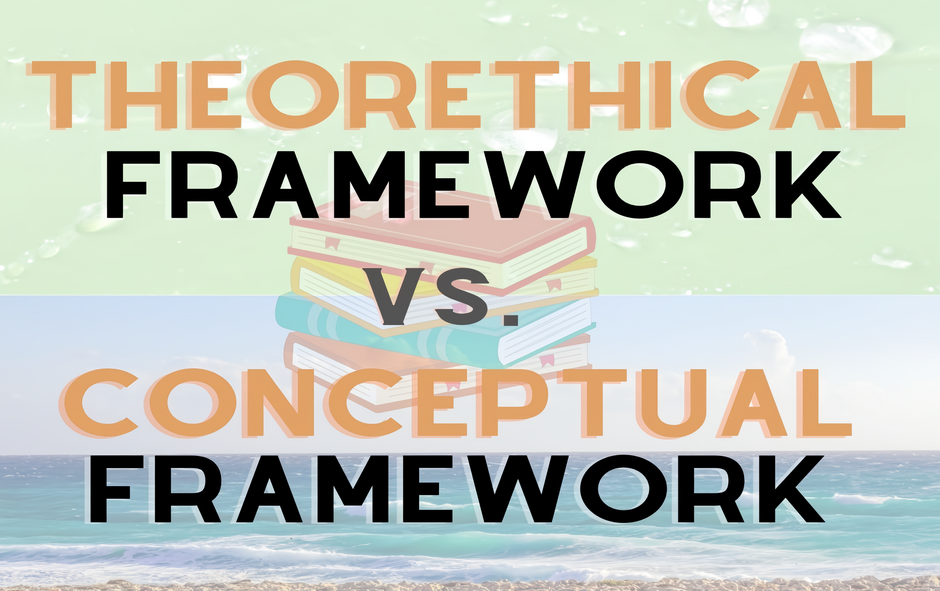Theoretical framework and conceptual framework are both essential components of research projects. Interestingly, some students confuse these two concepts. The truth is, they serve distinct purposes and have different characteristics. In this article, I take you through some key factors you should know about Theoretical Framework vs. Conceptual Framework.
Purpose and Focus
-
- Theoretical Framework: The theoretical framework provides a foundation for your study. Basically, it outlines established theories, concepts, and models that guide your research. It helps explain the relationships between variables and provides a lens through which you analyze your data.
-
- Conceptual Framework: The conceptual framework, on the other hand, is more specific to your study. It elaborates on the concepts, variables, and relationships relevant to your research question. Furthermore, it bridges the gap between the theoretical underpinnings and the practical aspects of your study.
Level of Abstraction
-
- Theoretical Framework: Theoretical frameworks are typically broader and more abstract, drawing from established theories and principles in your field. They offer a conceptual foundation that extends beyond your specific study.
-
- Conceptual Framework: Conceptual frameworks are more specific and contextual. They focus on the concepts and relationships relevant to your research topic. Additionally, it helps you structure your research design, data collection, and analysis.
Origin and Source
-
- Theoretical Framework: Theoretical frameworks originate from well-established theories, models, or perspectives within your field of study. These are often developed by researchers and scholars over time.
-
- Conceptual Framework: Conceptual frameworks are usually developed by the researcher for the specific study. They are tailored to address the unique aspects and variables of the research question.
12 Easy Ways to Identify Research Gap
Writing Research Introduction: 7 Elements to Consider
How to Choose Relevant Research Topic
A hack for writing a great research proposal
Applicability

-
- Theoretical Framework: It is applicable to a broader range of studies within a particular field. You can use it to guide multiple research projects that share similar theoretical foundations.
-
- Conceptual Framework: You tailor it to the specific research question and context of your study. It provides a roadmap for your study’s design, data collection, and analysis.
Use in the Research Process
-
- Theoretical Framework: Guides your overall approach to research, including your choice of variables, research design, and analysis methods. It also helps you position your study within the broader academic discourse.
-
- Conceptual Framework: Focuses on operationalizing the variables, defining relationships, and specifying the connections between concepts in your study. It translates the theoretical concepts into a practical framework for your research.
In summary, while both theoretical and conceptual frameworks provide an essential structure to your research, they serve different functions and cater to different levels of abstraction and specificity. The theoretical framework is broader and rooted in established theories, guiding your overall research approach. The conceptual framework is more specific and tailored to your study’s unique focus, serving as a bridge between theoretical foundations and practical research design. Check out further explanations in pdf here.












